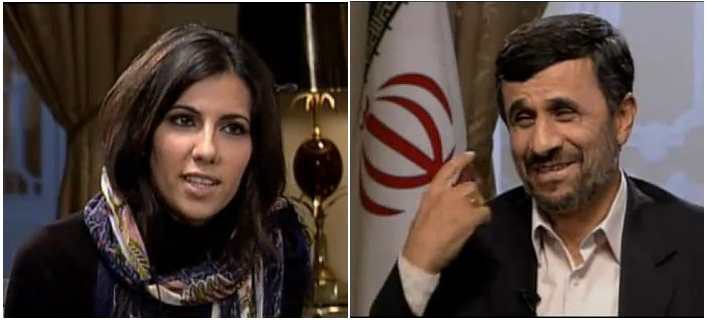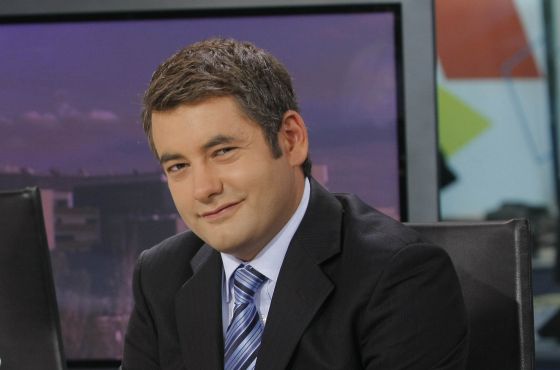[All links lead to Spanish-language pages, except where noted.]
Spain's main public television station channel 1 featured a workshop for parents on “how to teach their children to dress appropriately” in its daily afternoon update on May 14, 2013. Although the report was barely a minute and a half long, it featured soundbites such as “it seems we live in an era when everything must be shown” and “the big question: is my daughter dressing provocatively?”
YouTube user ACTUALIDADenunTUIT [1] uploaded the video:
http://www.youtube.com/watch?v=Q5m9dQZQc4g [2]
A few days before, the same program had broadcast a brief report on the “sudden” rise in religious devotion among the unemployed, asserting that prayer and the lighting of candles for the saints had a calming affect on them. This is the video of the report, uploaded on YouTube by Kewban [3]:
http://www.youtube.com/watch?v=D_rBFerV33s [4]
As expected, the story about how teenagers “should dress so as not to provoke” elicited significant dissent on the Internet. On Twitter, the Spanish words “decoro” (decorum) and “tve” (the TV station) were trending topics that very afternoon. Twitter users Andere [5], Nacho Grim [6], Alberto [7] and Herráez [7], took issue with the anachronistic nature of the advice:
@SaintAndere [8]: Entre el decoro en la vestimenta y las recomendaciones de orar para los parados, una no sabe en qué país vive, ni en qué siglo… @igotzi [9]
@SaintAndere [8]: Between dress and decorum and the recommendation to pray for the unemployed, one wonders in what country, and in what century we're living….@igotzi [9]
@NachoGrim [10]: http://www.publico.es/455359/tve-explica-como-vestir-a-las-hijas-con-decoro-para-que-no-provoquen … [11] – La Falange y la Sección femenina vuelven, espero impaciente la llegada del NODO. [No-Do: Noticiarios y Documentales [12]]
@NachoGrim [10]: http://www.publico.es/455359/tve-explica-como-vestir-a-las-hijas-con-decoro-para-que-no-provoquen … [11] The Falange and the Sección femenina are coming back; I eagerly await the arrival of the NODO. [No-Do: Noticiarios y Documentales [12]] [Translation note: The Falange and its sister organization of women were Francoist groups. NODOs was a propaganda newsreel.]
@TANSOLO140 [13]: Al paso que va la burra, “Cuéntame [14]” va a acabar siendo una serie futurista :(
@TANSOLO140 [13]: At this rate, “Cuéntame [14]” is going to end up being a futuristic series:(
[Translation note: Cuéntame is a popular TV series set in the final years of the Franco regime.]
@JHerraez [15]: ¿He dormido hacia atrás y despertado en 1947? TVE explica cómo vestir a las hijas con decoro y que no provoquen
@JHerraez [15]: Did I sleep backwards and wake up in 1947? TVE is explaining how to dress girls modestly so they don't provoke
In reality, this is simply the anecdotal part of a much more serious problem. Just a few months after winning an absolute majority in the November 2011 elections, the Council of Ministers of the ruling Partido Popular (PP) approved a decree that modified the way in which the board of RTVE, the public radio and television corporation, is chosen—until then it had required the consensus of two thirds of the legislature, but now a simple majority would suffice. This drew criticism from all parties, who accused the PP of converting a public broadcaster into state television.
Shortly afterwards, the new bosses assumed their positions; among them was news director Julio Somoano [17], formerly of the conservative television network Telemadrid and a figure closely associated with the Partido Popular. Somoano replaced Fran Llorente, under whose mandate TVE newscasts maintained the highest audience share and received more than 200 awards. Somoano's arrival had immediate repercussions on the broadcasting personnel. One of the first victims of the purge was journalist Ana Pastor, a well-regarded professional whose merits include securing the only interview [18] given by Iranian president Mahmoud Ahmadinejad to Western media. Anna Bosch [19] was also let go just prior to receiving the Madariaga award.
 [20]
[20]Mahmoud Ahmadinejad informs Ana Pastor that her veil has slipped during the interview. Screen capture from video by cartierchinoua on YouTube.
In November 2012, Carlos Alonso, producer of the flagship weekly program Informe Semanal [21], refused to sign off on a report on the death of five young people at at a Halloween mega-party [22]. The CNT union of RTVE explained the reasons on their website [23]:
El descenso por la cuesta de la credibilidad comenzó el año pasado, con motivo de la emisión de un programa sobre la tragedia del Madrid Arena. Un realizador fue fulminantemente expulsado del programa por negarse a firmar un reportaje que ha entrado en el top ten de la Historia universal de la infamia audiovisual y que se suponía que analizaba la tragedia, para llegar a la conclusión de que la culpa es de los padres actuales que no atan corto a sus hijas.
The decline in credibility started last year, with the broadcast of a program on the tragedy of the Madrid Arena. A producer was summarily ejected from the program for having refused to sign off on a report that has entered the top 10 of all time in audiovisual infamy and that was supposedly analyzing the tragedy, reaching the conclusion that the fault lay with the actual parents who did not reign in their daughters.
This case prompted the intervention of the Media Council [24], which declared:
Mediante la práctica de imposiciones, advertencias de sanción o el cambio de destino, la Dirección parece interesada en imponer una ‘ley del silencio’ que daría al traste con los derechos profesionales regulados en los últimos años
Through the practice of restrictions, warnings of potential suspension or transfer, management appears to be interested in imposing a ‘law of silence’ that would put an end to the rights of professionals as had been standardized in the last several years.
Alonso's supporters wrote a letter [24] endorsed by 260 professionals at the network. The letter includes the following:
La dirección [ignora] el precepto legal de que TVE debe ser independiente, plural y rigurosa en sus contenidos. Se seleccionan temas de manera tendenciosa, se imponen enfoques concretos y (…) se veta de una manera clara y directa tanto a ciertas personas como aquellas noticias incómodas para la línea editorial de la dirección. (…) [La expulsión de Alonso] es injustificable en lo profesional y un paso más en una estrategia clara que quiere imponer el silencio, el miedo y la ausencia de debate periodístico en la elaboración de los contenidos.
Management [is ignorant] of the legal precept that TVE must be independent, pluralistic and rigorous in its content. Subjects are chosen with bias, specific approaches are imposed and (…) both certain people and news items inconvenient to management's editorial line are being vetoed in a clear and direct manner. (…) [The expulsion of Alonso] is professionally unjustifiable and one step further in an obvious strategy to ensure silence, fear, and the absence of journalistic debate in content production.
The program Informe Semanal has also been heavily criticized [25] for its treatment of the Bárcenas case [26] [en], a corruption case allegedly involving high level members of the PP. All this is taking its toll on TVE broadcasts: the dramatic drop in audience share [27] has meant that the network has lost its status as news leader. Moreover, not one of TVE's programs has been nominated this year for the Television Academy awards [28]. Against this backdrop, it is hardly surprising that the Council of Europe criticized the interference of the Spanish government in TVE in its resolution 1920 [29] [en], of 24 January 2013:
La Asamblea advierte con preocupación recientes informes sobre presiones políticas en cadenas de servicio público en Hungría, Italia, Rumanía, Serbia, España y Ucrania (…). Recuerda a los estados miembros los (…) indicadores de medios en una democracia: «las cadenas públicas deben estar protegidas de injerencias políticas en su gestión diaria y su trabajo editorial; se deben negar los puestos de dirección a personas con claras afiliaciones políticas; las cadenas públicas deben establecer códigos de conducta internos para el trabajo periodístico y la independencia editorial de influencias políticas»
The Assembly notes with concern recent reports about political pressure on public service broadcasters in Hungary, Italy, Romania, Serbia, Spain and Ukraine (…). It reminds member States of (…) indicators for media in a democracy: “public service broadcasters must be protected against political interference in their daily management and their editorial work; senior management positions should be refused to people with clear party political affiliations; public service broadcasters should establish in-house codes of conduct for journalistic work and editorial independence from political influence.”
